Filter by
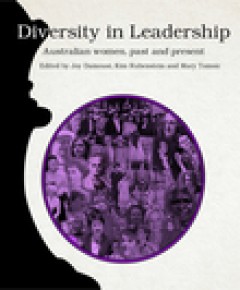
Diversity in leadership: Australian women, past and present
Diversity in Leadership: Australian women, past and present provides a new understanding of the historical and contemporary aspects of Indigenous and non-Indigenous women’s leadership in a range of local, national and international contexts.
- Edition
- -
- ISBN/ISSN
- 9781925021707
- Collation
- 339 p.; 23 cm.
- Series Title
- -
- Call Number
- 361.61 DIV d
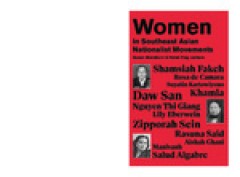
Women in Southeast Asian nationalist movements : a biographical approach
Books on Southeast Asian nationalist movements make very little — if any — mention of women in their ranks. Biographical studies of politically active women in Southeast Asia are also rare. This book makes a strong case for the significance of women’s involvement in nationalist movements. The authors show women negotiating their own subjectivity and agency at the confluence of colonialism…
- Edition
- -
- ISBN/ISSN
- -
- Collation
- IX, 333 p.
- Series Title
- -
- Call Number
- 320.0820959 WOM w
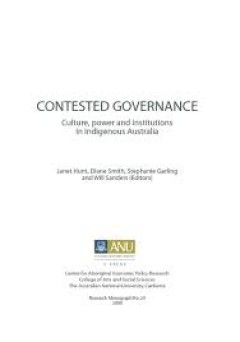
Contested governance: culture, power and institutions in Indigenous Australia
It is gradually being recognised by both Indigenous and non-Indigenous Australians that getting contemporary Indigenous governance right is fundamental to improving Indigenous well-being and generating sustained socioeconomic development. This collection of papers examines the dilemmas and challenges involved in the Indigenous struggle for the development and recognition of systems of governanc…
- Edition
- -
- ISBN/ISSN
- 9781921536052
- Collation
- -
- Series Title
- -
- Call Number
- 320.0899915 CON c

Governing New Guinea; an oral history of Papuan administrators, 1950-1990
This is the first time that indigenous Papuan administrators share with an international public their experiences governing their country. These administrators were the brokers of development. After graduating from the School for Indigenous Administrators (OSIBA) they served in the Dutch administration until 1962. The period 1962-1969 stands out as turbulent and dangerous, and for many curtaile…
- Edition
- -
- ISBN/ISSN
- 9789067183932
- Collation
- x, 358 p.; 22 cm.
- Series Title
- KONINKLIJK INSTITUUTVOOR TAAL-, LAND- EN VOLKENKUNDE
- Call Number
- 995.304 GOV g
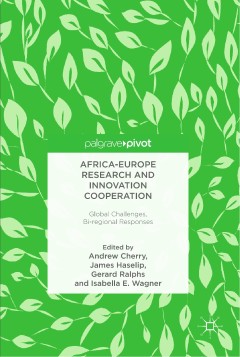
Africa-Europe research and innovation cooperation : global challenges, bi-reg…
This edited volume is concerned with the evolution and achievements of cooperation in research and innovation between Africa and Europe, and points to the need for more diversified funding and finance mechanisms, and for novel models of collaboration to attract new actors and innovative ideas. It reflects on the political, economic, diplomatic and scientific rationale for cooperation, while als…
- Edition
- -
- ISBN/ISSN
- 9783319699295
- Collation
- xxxi, 147p. : ill.
- Series Title
- -
- Call Number
- 507.206 AFR a
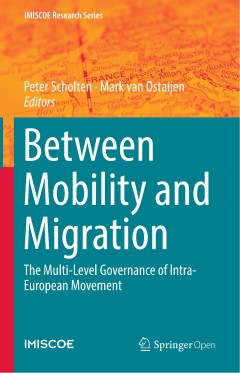
Between mobility and migration : the multi-level governance of intra-European…
This open access book offers a critical perspective on intra-European mobility and migration by using new empirical data and theoretical discussions. It develops a theoretical and empirical analysis of the consequences of intra-European movement for sending and receiving urban regions in The Netherlands, Sweden, Austria, Turkey, Poland and Czech Republic. The book conceptualizes Central and …
- Edition
- -
- ISBN/ISSN
- 9783319779911
- Collation
- VI, 270p. : ill.
- Series Title
- -
- Call Number
- 304.8 BET b
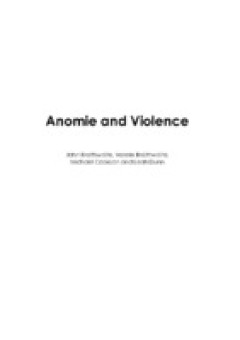
Anomie and violence : non-truth and reconciliation in Indonesian peacebuilding
Indonesia suffered an explosion of religious violence, ethnic violence, separatist violence, terrorism, and violence by criminal gangs, the security forces and militias in the late 1990s and early 2000s. By 2002 Indonesia had the worst terrorism problem of any nation. All these forms of violence have now fallen dramatically. How was this accomplished? What drove the rise and the fall of violenc…
- Edition
- -
- ISBN/ISSN
- 9781921666230
- Collation
- XV, 501 p.
- Series Title
- -
- Call Number
- 320.9598 ANO a
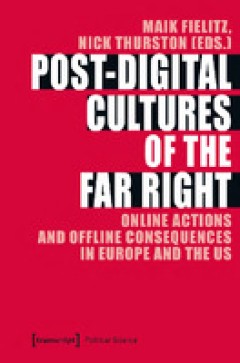
Post-digital cultures of the far right : online actions and offline consequen…
How have digital tools and networks transformed the far rights strategies and transnational prospects? This volume presents a unique critical survey of the online and offline tactics, symbols and platforms that are strategically remixed by contemporary far-right groups in Europe and the US. It features thirteen accessible essays by an international range of expert scholars, policy advisors and …
- Edition
- -
- ISBN/ISSN
- 9783839446706
- Collation
- 208 p.
- Series Title
- Edition Politik, 71
- Call Number
- 320.533 PAS p
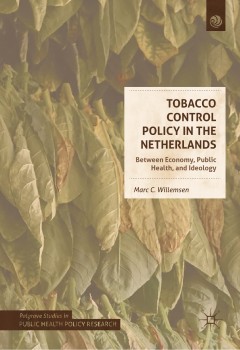
Tobacco control policy in the Netherlands : between economy, public health, a…
Governments have known since the 1960s that smoking results in irreversible health damage. This open access book examines why governments have done so little to combat this when they have been aware of the problem and its solutions for decades. What are the strategies and decisions that make a difference, given that policy environments are often not conducive to change? Taking the Netherlands a…
- Edition
- -
- ISBN/ISSN
- 9783319723686
- Collation
- xxi. 373p. : ill.
- Series Title
- -
- Call Number
- 320.6 WIL t
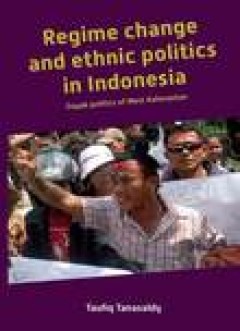
Regime change and ethnic politics in Indonesia; Dayak politics of West Kalima…
When the Indonesian New Order regime fell in 1998, regional politics with strong ethnic content emerged across the country. In West Kalimantan the predominant feature was particularly that of the Dayaks. This surge, however, was not unprecedented. After centuries of occupying a subordinate place in the political and social hierarchy under the nominal rule of the Malay sultanates, Dayaks became …
- Edition
- -
- ISBN/ISSN
- -
- Collation
- xiv, 461 p.; 22 cm.
- Series Title
- VERHANDELINGENVAN HET KONINKLIJK INSTITUUTVOOR TAAL-, LAND- EN VOLKENKUNDE278
- Call Number
- 959.8 TAN r
 Computer Science, Information & General Works
Computer Science, Information & General Works  Philosophy & Psychology
Philosophy & Psychology  Religion
Religion  Social Sciences
Social Sciences  Language
Language  Pure Science
Pure Science  Applied Sciences
Applied Sciences  Art & Recreation
Art & Recreation  Literature
Literature  History & Geography
History & Geography